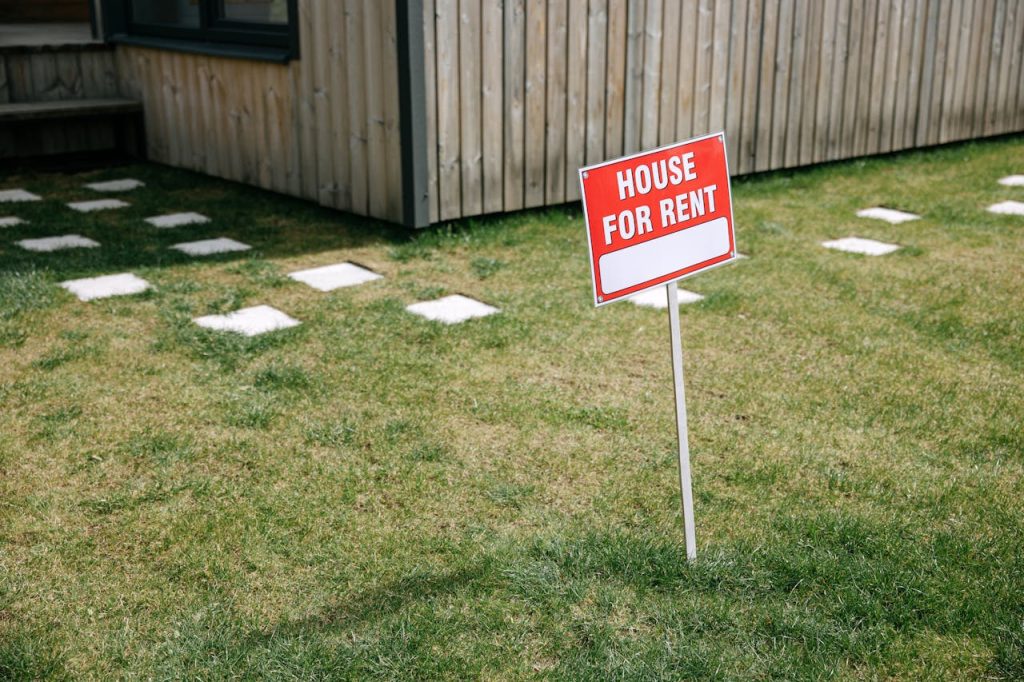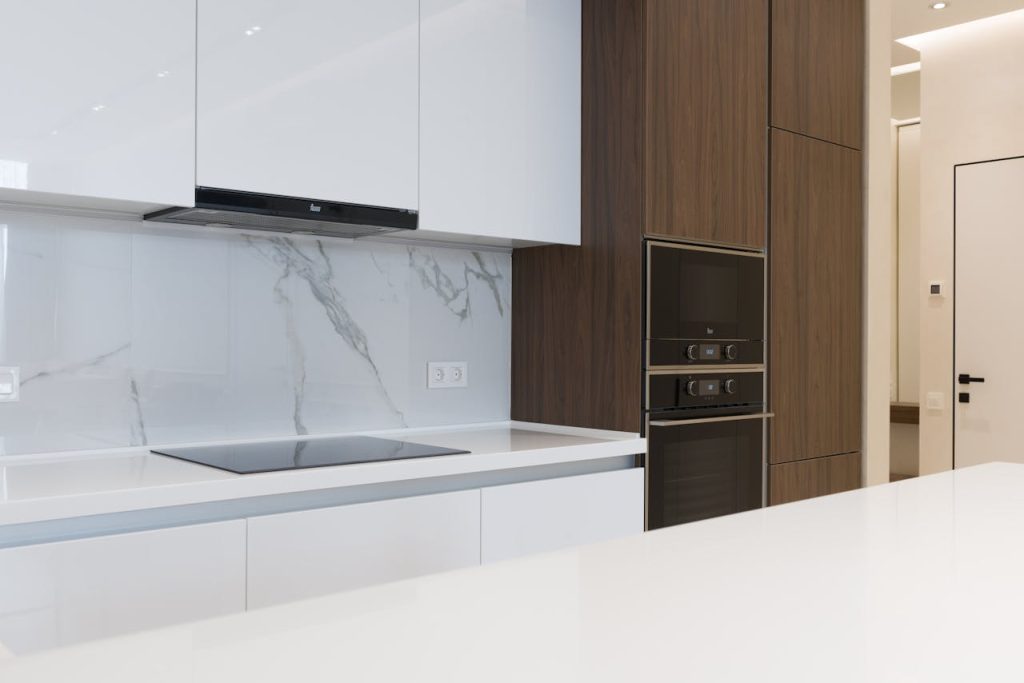November 19, 2024 | Sexton Real Estate Group
Maintaining a rental property goes far beyond simply collecting rent each month; it requires consistent care, strategic planning, and a proactive approach to repairs and upkeep. For landlords, a well-maintained property is a valuable asset that attracts and retains responsible tenants, minimizes costly emergency repairs, and protects the property’s long-term value. Yet, balancing these tasks with other responsibilities can be challenging without a clear maintenance plan. Understanding the essential aspects of property maintenance is key to achieving this balance and ensuring a smooth landlord-tenant relationship.
From seasonal inspections to routine system checks, mastering a few core maintenance practices can make all the difference in keeping rental properties in top condition. With these fundamental tips, landlords can avoid common pitfalls, such as unexpected breakdowns or deteriorating interiors, that may result in tenant dissatisfaction or high turnover. By adopting these practices, property owners can address minor issues before they escalate, leading to safer living conditions for tenants and fewer repair costs over time.
This guide covers 10 essential maintenance tips every landlord should know to streamline upkeep and foster a better tenant experience. Whether you’re new to property management or a seasoned landlord, these tips offer valuable insights into maintaining a rental property efficiently and effectively. Let’s dive in and explore the most important aspects of rental property maintenance to help you safeguard your investment and build lasting tenant relationships.

1. Conduct Routine Inspections
Regular inspections are essential for landlords to stay proactive with property maintenance. By inspecting the property on a scheduled basis, landlords can identify issues early, such as minor leaks, electrical hazards, or structural wear. This approach helps prevent minor problems from turning into significant repairs, which can be more costly and disruptive for both the landlord and tenants. Routine inspections also provide peace of mind, ensuring the property remains in top shape for the duration of a tenant’s lease.
Inspections can be done quarterly, bi-annually, or seasonally, depending on the property’s needs and local climate. During these visits, landlords should check essential systems, including plumbing, electrical, and HVAC. Additionally, landlords should communicate the importance of maintenance to tenants, encouraging them to report issues early. This partnership allows for a seamless experience where both landlords and tenants contribute to the property’s upkeep.
2. Prioritize HVAC System Maintenance
HVAC systems are central to tenant comfort, and they require consistent upkeep to function efficiently. Routine HVAC maintenance, such as seasonal tune-ups and regular filter changes, can help landlords avoid sudden breakdowns during extreme weather. A licensed HVAC technician should inspect the system at least once a year to address any worn-out components and check for proper airflow. Ensuring this maintenance before summer and winter can prevent costly emergency calls and extend the lifespan of the equipment.
For added protection, landlords can remind tenants about HVAC care, such as changing filters regularly if accessible, to prevent clogs and overworking the system. Investing in quality air filters and cleaning ducts periodically also improves air quality, contributing to a healthier living environment for tenants. Prioritizing HVAC maintenance shows tenants that their comfort is valued and helps keep utility bills manageable.
3. Check Plumbing Regularly
Plumbing issues can be one of the costliest repairs if left unattended. Regularly inspecting plumbing fixtures, pipes, and water heaters can prevent water damage and ensure efficient water flow throughout the property. Landlords should check for signs of leaks, corrosion, or low water pressure during routine inspections, as these may indicate underlying issues. Additionally, water heaters should be flushed annually to remove sediment buildup, which can hinder their performance and reduce their lifespan.
Educating tenants on plumbing care is also essential, as issues like clogged drains or toilets are often avoidable. Providing tenants with basic guidance on what not to flush or pour down drains can reduce instances of blockages. By staying proactive and maintaining open communication, landlords can catch potential problems early and reduce the risk of significant plumbing repairs.
4. Address Pest Control Proactively
Pests can negatively impact a tenant’s experience and cause property damage if not managed effectively. Proactive pest control measures, such as sealing entry points, removing debris, and scheduling regular pest treatments, help keep infestations at bay. Landlords should arrange for inspections and treatments by a licensed pest control provider, especially during seasons when pests are more active. By addressing pest control consistently, landlords can protect both their tenants and the property’s integrity.
In addition, educating tenants about pest prevention, like proper food storage and waste disposal, can reduce the likelihood of an infestation. Promptly addressing any signs of pests reported by tenants can prevent the problem from worsening. Maintaining a pest-free property not only ensures a healthier, more pleasant living environment but also reflects a landlord’s commitment to property care.
5. Maintain Exterior And Landscaping
First impressions matter, and a well-maintained exterior is crucial for attracting and retaining tenants. Routine care of the property’s exterior and landscaping, such as trimming bushes, clearing pathways, and keeping the lawn neat, enhances curb appeal and ensures a safe, pleasant environment. Seasonal landscaping can also prevent hazards like fallen branches and slippery walkways, adding to tenant safety.
Landlords should also pay attention to elements like fences, decks, and outdoor lighting. Regularly inspecting and repairing these features can prevent potential injuries or property damage. Exterior upkeep not only boosts the property’s aesthetic appeal but also minimizes potential safety risks, making it a worthwhile investment in the property’s long-term value.
6. Inspect The Roof And Gutters
The roof and gutters are essential for protecting property from water damage, making regular inspections a necessity. A twice-yearly check can help identify damaged shingles, leaks, or other issues that could lead to costly repairs if left unattended. Fall is an ideal time for a roof and gutter check, as leaves and debris often accumulate and can lead to gutter clogs or water buildup.
Proper roof and gutter maintenance can prevent problems such as foundation issues, interior leaks, and mold growth. Landlords should schedule professional inspections as needed and consider gutter cleaning after stormy seasons. Ensuring that the roof and gutters are in good condition also helps maintain tenant satisfaction, as it reduces the risk of water-related disruptions inside the property.
7. Ensure Safety Measures Are Up To Code
Safety is a critical aspect of rental property management, both for tenant well-being and landlord liability. Ensuring that smoke and carbon monoxide detectors are functional, emergency exits are accessible, and fire extinguishers are up to date can prevent potential accidents. Landlords should check safety devices regularly and replace batteries at least once a year, especially before inspections or tenant move-ins.
Landlords must also stay updated on local safety codes and compliance regulations, as these standards can vary by region. Keeping the property up to code not only provides peace of mind for both parties but also helps landlords avoid penalties and legal issues. A commitment to safety demonstrates responsibility and shows tenants that their well-being is a top priority.
8. Upgrade To Energy-Efficient Fixtures
Upgrading to energy-efficient fixtures is beneficial for landlords and tenants alike. Energy-saving lighting, low-flow faucets, and high-efficiency appliances can reduce energy and water costs, making the property more attractive to eco-conscious renters. While these upgrades may involve initial costs, they often pay for themselves in reduced utility expenses and increased tenant satisfaction.
Energy-efficient properties are also appealing for their environmental benefits. As sustainability becomes a priority for more tenants, these upgrades can serve as a strong selling point. Landlords can enhance the property’s appeal by highlighting the energy savings tenants will enjoy, creating a win-win situation for both the landlord’s budget and the tenant’s comfort.

9. Encourage Open Communication With Tenants
Open communication with tenants is essential for prompt maintenance and effective property management. By establishing a clear and easy way for tenants to report issues, landlords can address potential problems before they escalate. This proactive approach helps tenants feel valued and assures them that their concerns will be handled promptly, which can foster a stronger landlord-tenant relationship.
Landlords should respond to maintenance requests quickly and professionally. Keeping communication channels open, such as through email or a maintenance app, also builds trust and transparency. Encouraging tenants to be open about maintenance needs helps landlords prevent minor issues from becoming major repairs, ultimately benefiting both parties.
10. Plan For Seasonal Maintenance
Every season brings unique maintenance challenges, and planning for these can keep properties in excellent condition year-round. Fall is ideal for roof and gutter checks, while winter may require pipe insulation and heating checks. Spring and summer call for landscaping updates, AC servicing, and pest prevention. Creating a seasonal checklist helps landlords track necessary tasks and ensures no essential maintenance is overlooked.
Seasonal maintenance reduces the risk of weather-related damage and prepares the property for tenants’ comfort throughout the year. By being proactive, landlords can avoid emergency repairs, keep tenants satisfied, and maintain a property that remains appealing and functional year-round. Staying ahead of seasonal needs can make property management smoother and more efficient.
Conclusion
Proactive rental property maintenance is essential for protecting property value, reducing unexpected expenses, and enhancing tenant satisfaction. From routine inspections to seasonal maintenance and open communication, these essential tips enable landlords to manage properties more effectively. When landlords prioritize these maintenance practices, they create a safer, more enjoyable living environment for tenants and protect their investments for years to come.
Looking For Expert Guidance On Home Buying In The SF Bay Area? Sexton Group Real Estate Is Here To Help!
Look no further! Sexton Group Real Estate | Property Management, the premier real estate agency in Northern California, offers exceptional home-buying services designed to guide you every step of the way. Based in the vibrant community of Berkeley, our boutique real estate company specializes in helping buyers find their dream homes throughout the San Francisco Bay Area. Whether you’re a first-time buyer or looking to upgrade, we’ll make the process seamless and stress-free.
We proudly serve the Bay Area from three convenient local offices: one in the picturesque heart of Berkeley, another near the bustling downtown of Oakland, and a third in the historic, family-friendly Lafayette. Each location reflects our communities’ diverse beauty and lifestyle, with the same down-to-earth, friendly service that makes Sexton Group Real Estate your trusted partner.
With over 25 years of experience in the real estate market, our team of dedicated agents is committed to helping you find the perfect home. From the vibrant urban neighborhoods of Oakland to the peaceful suburbs of Lafayette, we are here to match you with the right property and guide you through every detail—from your first tour to the final paperwork.
Ready to take the first step toward homeownership? Contact us today for your free consultation, and let Sexton Group Real Estate help you make your dream home a reality!
Previous Article Home Next Article
